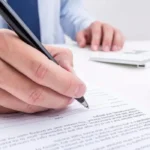Broker Investigation: Barry Buchholz — FINRA Issues New AWC for Unauthorized Trading
The White Law Group is investigating potential securities claims involving financial advisor Barry Buchholz. The Financial Industry Regulatory Authority (FINRA) has reportedly issued a new Letter of Acceptance, Waiver, and Consent (AWC No. 2024081242701) on November 19, 2025 involving former LPL Financial broker Barry Buchholz (CRD #1583582).
According to the findings, FINRA allegedly sanctioned Buchholz for effecting 11 unauthorized transactions totaling more than $590,000 in customer accounts while he was associated with LPL Financial.
Buchholz, who first became registered in 1987, reportedly has a long industry history, including nine disclosures on his BrokerCheck report involving customer disputes and a prior regulatory action.
FINRA Findings: Unauthorized Trades in Customer Accounts
According to the AWC, between September and October 2023, Buchholz reportedly executed a series of trades in the accounts of four customers without authorization. The accounts belonged to the adult daughters of a deceased senior customer.
Key findings/allegations include:
- Buchholz made 11 unauthorized transactions, totaling over $590,000
- The trades generated more than $16,000 in commissions
- LPL Financial later disclosed the customer complaint in an amended Form U5 filed in January 2025
- Buchholz voluntarily resigned from LPL in November 2024
FINRA determined that Buchholz violated FINRA Rule 2010 by effecting unauthorized transactions, a violation that constitutes unethical conduct.
Penalties imposed in the AWC include:
- One-month suspension
- $7,500 fine
- Disgorgement of $7,480, plus interest
Although Buchholz is no longer registered, he remains subject to FINRA’s jurisdiction for misconduct occurring during his period of registration.
Background, Barry Buchholz: Long Regulatory and Complaint History
FINRA’s BrokerCheck report shows that Buchholz has been associated with nine different firms over 36 years, including:
- LPL Financial (2021–2024)
- Private Client Services (2018–2021)
- Cambridge Investment Research (2011–2018)
- New England Securities (2008–2011)
- Securities America (2005–2008)
- The O.N. Equity Sales Company (1999–2005)
His record includes multiple customer complaints, several alleging unauthorized trading or unsuitable recommendations, with settlements ranging from $2,500 to over $10,000. He also has a 2003 regulatory action by the Iowa Insurance Division resulting in a cease-and-desist order and monetary penalties related to replacement-rule violations.
The new FINRA AWC represents the most recent regulatory action involving Buchholz and adds to a lengthy history of investor disputes.
Unauthorized Trading & Broker Liability
Unauthorized trading occurs when a financial advisor makes transactions in a customer’s account without prior consent. FINRA rules require that brokers obtain express permission from customers unless the account is discretionary—and even discretionary accounts must follow strict documentation and approval requirements.
Investors may recover losses caused by unauthorized trading through a FINRA arbitration claim, often filed on the basis of:
- Negligence
- Breach of fiduciary duty
- Violation of FINRA Rule 2010
- Failure to supervise (claims against the brokerage firm)
Firms such as LPL may be liable for damages if they failed to reasonably monitor the advisor’s activity or detect excessive or unauthorized trading.
Recovering Investment Losses
If you believe you have been the victim of unauthorized trading, unsuitable recommendations, or other forms of broker misconduct, you may be entitled to recover your losses through FINRA arbitration.
The White Law Group represents investors nationwide in claims against brokerage firms for failure to supervise and other regulatory violations.
For a free consultation, call The White Law Group at (888) 637-5510 or visit our website to learn more about filing a FINRA arbitration claim.
FAQs
1. What is unauthorized trading?
Unauthorized trading occurs when a financial advisor executes transactions in a customer’s account without the customer’s prior approval. This is prohibited unless the account is specifically set up as discretionary and properly documented.
2. Can investors recover losses from unauthorized trades?
Yes. Investors can file a FINRA arbitration claim seeking damages from the broker and the brokerage firm, which may be liable for failure to supervise.
3. Is LPL Financial responsible for the actions of its brokers?
Brokerage firms can be held liable if they fail to supervise their advisors or fail to detect red flags such as unauthorized trading or unusual activity in customer accounts.
Last modified: November 19, 2025


